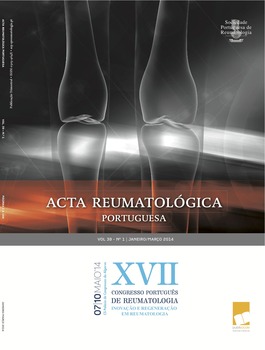Colonic perforation secondary to metastatic lung adenocarcinoma during anti-TNF treatment for ankylosing spondylitis
Authors
Sifuentes Giraldo WA, González García A, Chamorro Tojeiro S, Sánchez Sánchez O, Pian H, Vázquez Díaz M
Biological agents targeting inflammatory cytokines such
as tumour necrosis factor alpha (TNF-α) have emerged
in recent years as effective medications for a variety of
inflammatory arthropathies. Although the relationship
between the use of anti-TNF drugs and an increase in
the rate of infections is well established, the role of these
drugs in the development of different types of cancer
is unclear. Randomized clinical trials and national
registries have not demonstrated a significant increase
in the risk of cancer in patients treated with anti-TNF
drugs, but numerous cases of the appearance of malignant
tumors in patients receiving these drugs have been
reported. We describe the case of a 73-year-old man,
ex-smoker, who developed a lung cancer during treatment
with infliximab further complicated by perforation
of a metastasis in the sigmoid colon, which is a
very infrequent event in the course of this malignancy.
A few similar cases previously reported in the literature
are reviewed.
Section:
Clinical Cases





